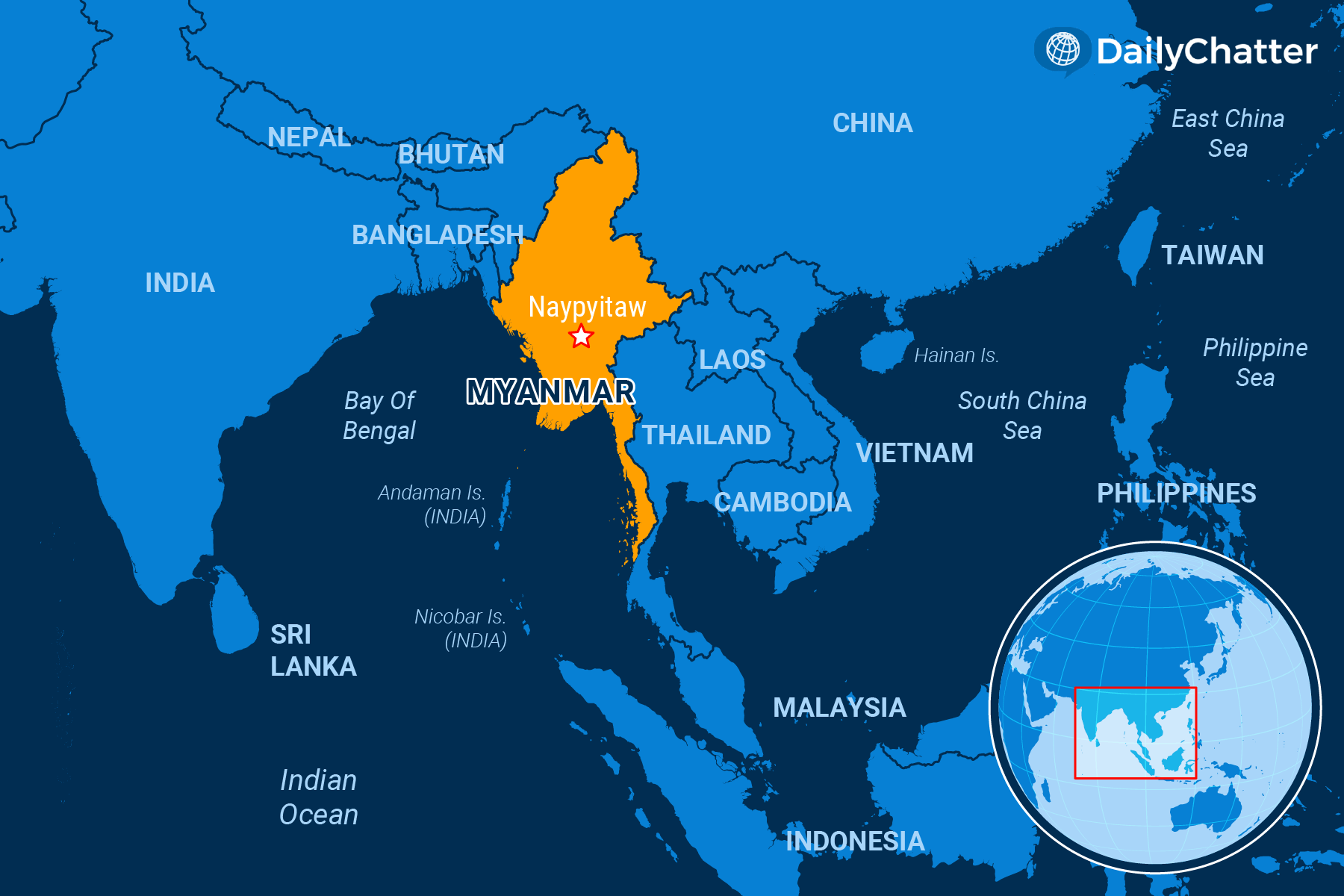NEED TO KNOW
Of Chickens and Eggs
MYANMAR

Aung San Suu Kyi won a Nobel Peace Prize in 1991 for her pro-democracy activism in Myanmar, where she spent years in and out of house arrest for opposing her country’s brutal dictatorship. Yet she persisted in opposing the military junta in her southeast Asian country. When Myanmar held its first openly contested elections in 2015, her National League for Democracy, or NLD, won, and she became the de facto leader of the country.
Then one year ago, the military again seized power in a coup. A photo of a Catholic nun, Sister Ann Rose, kneeling before soldiers with her hands spread in a bid to halt the violence during the coup went viral around the world, Agence France-Presse wrote. Since then, the military has killed more than 1,500 people and jailed almost 10,000.
“As the anniversary of the coup draws near, the military has launched indiscriminate airstrikes that have killed civilians in the southeast, blocked life-saving aid, and kept up a bloody campaign against activists and journalists, who have been detained and killed in custody,” claimed Amnesty International.
Recently, a court sentenced Suu Kyi to four years in jail for possessing walkie-talkies, reported the BBC. That punishment was in addition to a separate conviction and sentenced last year to two years for inciting dissent. On Feb. 14, her trial on election fraud charges involving the 2020 election begins, the Associated Press reported. Her party won a landslide victory.
The decisions were part of a broader legal crackdown on dissent, wrote the Guardian. A military tribunal recently sentenced NLD lawmaker Phyo Zayar Thaw and pro-democracy activist Kyaw Min Yu to death, too. Armed groups calling themselves “People’s Defense Forces” have formed to fight back. They and other groups control large swathes of the country.
The contrast between the last year and the decade of Suu Kyi’s administration is stark. As the Economist explained, fighting with rebel groups abated as ceasefires were signed. Economic growth was almost 7 percent annually. Now unemployment is surging, the economy has shrunk by nearly a third and violence is rampant.
To be sure, as the New York Times showed, Suu Kyi is a flawed leader. She garnered intense criticism for rejecting accusations that Myanmar, a majority Buddhist country, was committing genocide against the Muslim Rohingya minority.
Still, the country is in turmoil now, as this Deutsche Welle video illustrates. Australia-based Woodside Petroleum as well as American and French oil giants Chevron and Total have pulled out of the country, saying they can’t operate there while the junta retains power, violates human rights and lets chaos reign, Reuters reported.
The junta, for its part, says it will hold elections once stability returns. But it’s a chicken-and-egg situation: That stability won’t return until the military relinquishes control.
Meanwhile, on this grim anniversary, hundreds of thousands defied the junta by staying home in a “silent strike” that shut stores and markets across the country and halted the business of daily life, France24 reported.
Violence and intimidation might create the illusion of control but at this point, it’s a mirage, disappearing as one approaches.
To read the full edition and support independent journalism, join our community of informed readers and subscribe today!
